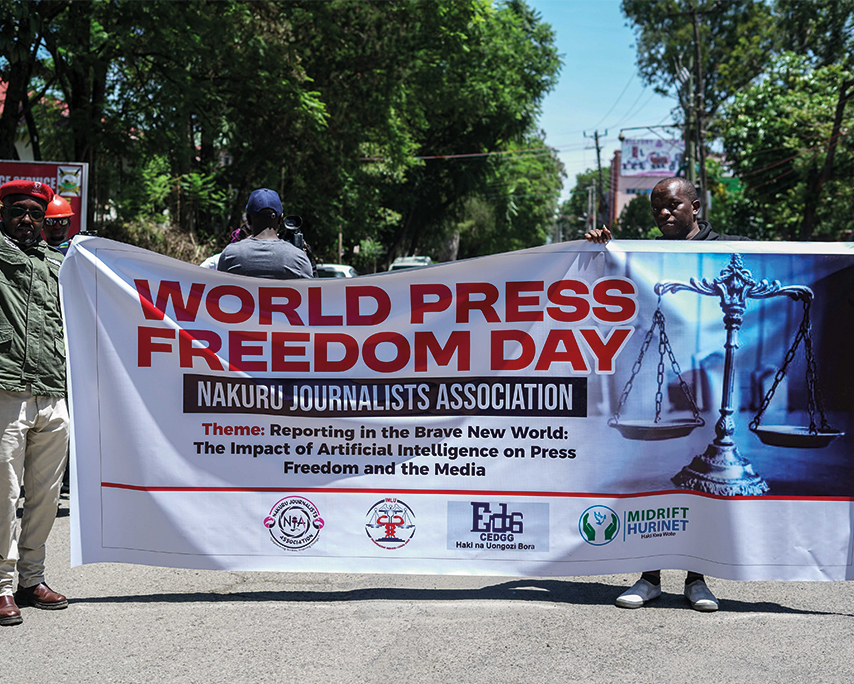World Press Freedom Day
What press freedom in Africa means for emerging communicators
If you are setting out to become a communications professional in Africa today, you are stepping into a powerful but evolving space. You are not simply entering a career as another content creator but as a force for change. You are joining a conversation about who gets to tell stories, how they are told, and who gets to hear them. To be clear, the media space you are stepping into is not neutral. It is shaped by old gatekeepers, leftover colonial structures, economic imbalances, and tech algorithms that were not built with you in mind. The good news is that press freedom is no longer just a legal right but a creative responsibility.
Although press freedom is about avoiding government interference or being able to report without fear of being jailed, censored, or threatened, it does not end here. True press freedom is about having the space to innovate, to challenge, and to include. It is about making space for marginalised voices, experimenting with new formats, and reflecting the realities of African societies—not just repeating inherited structures or foreign templates.
As a communicator, do not be afraid to use new tools—TikTok, podcasts, community newsletters, or WhatsApp voice notes. These are not “less professional” but are part of the changing face of media. Audiences are increasingly mobile, informal, and interactive. If you want to connect with them, meet them where they are.
But innovation should also be anchored in relevance. Local languages, oral storytelling traditions, and community-based formats are essential to creating media that is authentic and accessible. Consequently, you must root your work in the culture, pace, and priorities of the communities you serve.
Gatekeeping has long excluded rural, youth, and grassroots voices from African media. Many young Africans feel they need approval from established institutions to be taken seriously in media or communications. The truth is that the tools of storytelling are already in your hands. If mainstream platforms cannot carry your voice, build your own. Start a blog. Launch a local podcast. Collaborate with peers to run digital campaigns around the stories you care about. It is important to note that gatekeeping has long excluded rural, youth, and grassroots voices from African media. Additionally, we have been taught to see African storytelling as something that needs polishing to be valuable. Part of your role is to disrupt those old hierarchies and help build new, more democratic platforms that reflect the full spectrum of the African experience.
Local should become your work’s foundation, not a stepping stone. You know what works better in your context than anyone else. You understand the rhythms, the slang, the silence between the words. That is not a disadvantage—that is your superpower. Build media that reflects how people actually live. Speak the languages people use when they are not performing. Celebrate the nuance, not just the headline. This is how you build trust. This is how you build relevance. This is how you build freedom.
Moreover, press freedom means nothing if it reinforces silos. A future-ready media landscape depends on people like you creating dialogue, not division— especially in a continent as diverse and dynamic as Africa. Creating content that can live online, on a radio at your local kiosk, and in a tweet thread is crucial.
Maybe success for you is not about working for a major international outlet. Perhaps it is producing a podcast that helps teen girls in rural Zambia talk about body image. Maybe it is running a visual storytelling platform that documents informal economies across East Africa. It may be helping your organisation move from charity PR to authentic, community-driven narratives.
Press freedom in Africa today is about building systems that allow everyone—not just the elite or the loudest—to participate in public life. If you keep that in mind, your work will matter, wherever it is seen or heard.



